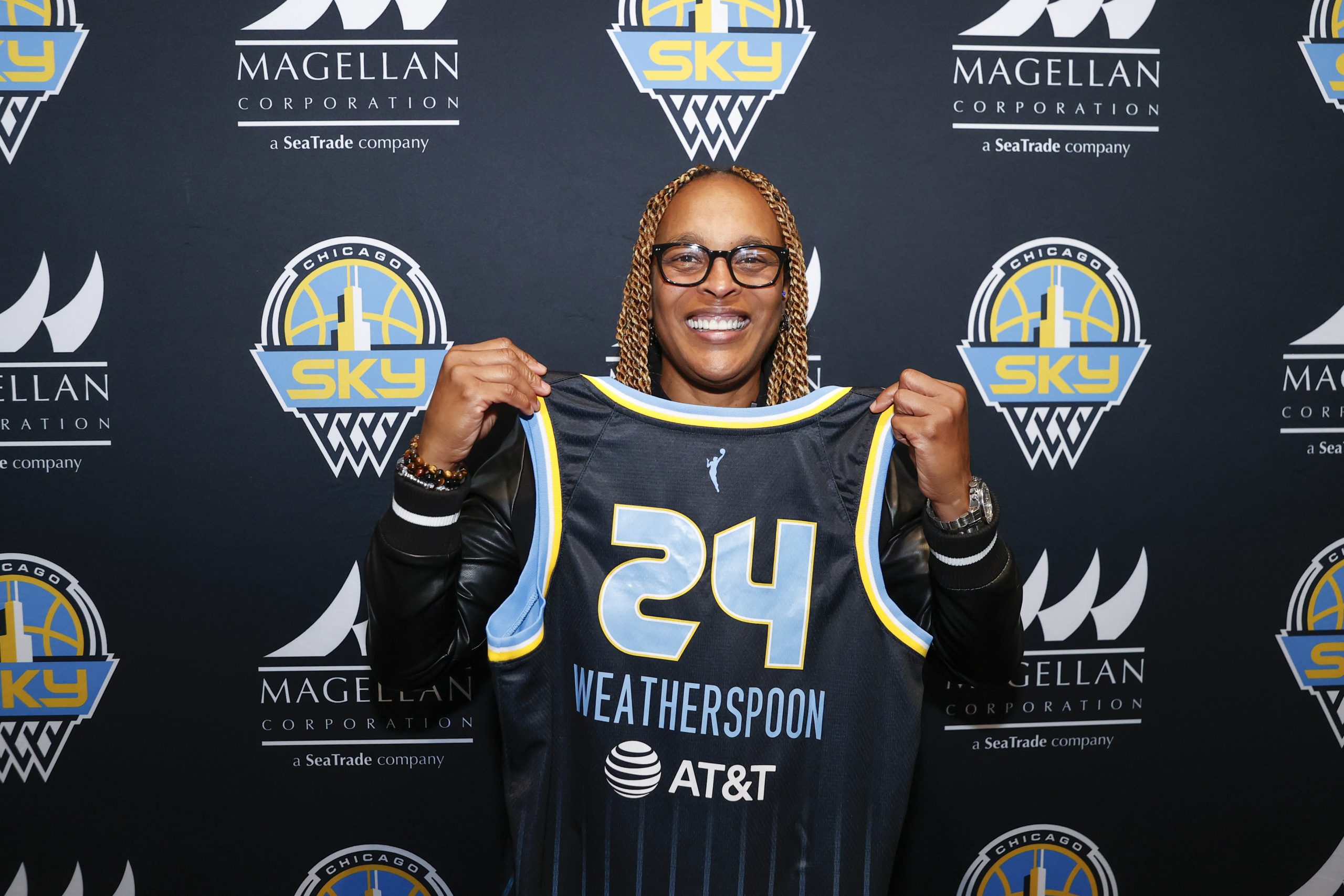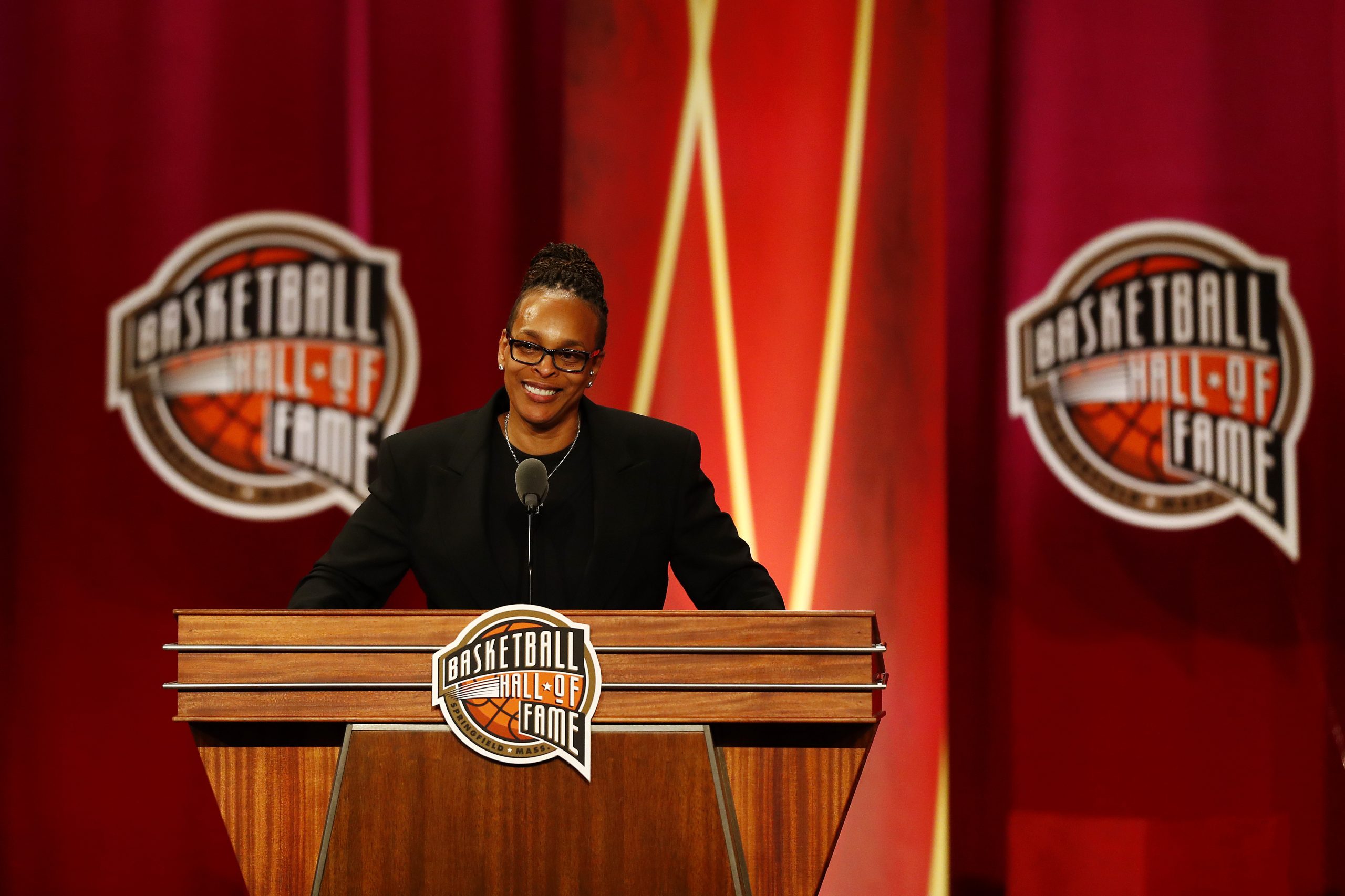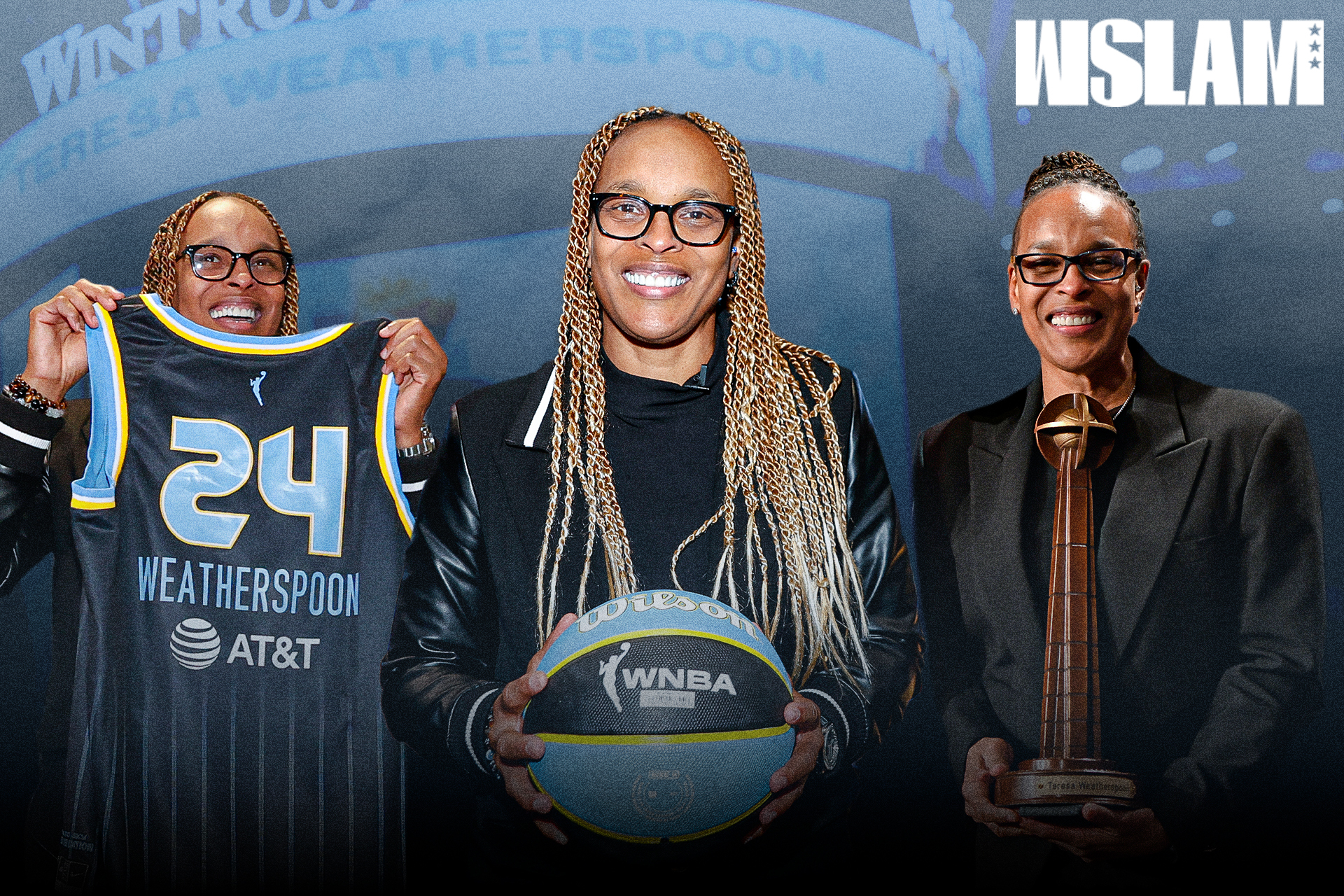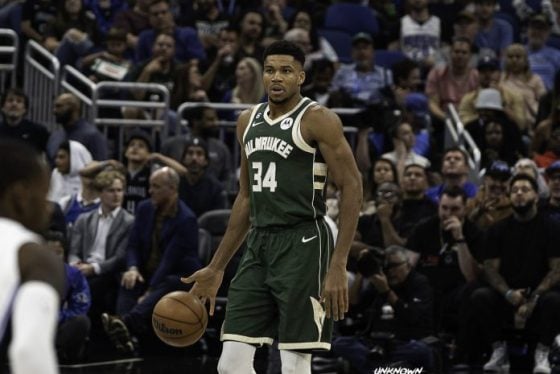It’s been a few weeks since the Chicago Sky announced in October that Teresa Weatherspoon will take over as head coach of the franchise, and the Hall of Famer is still processing. She hasn’t officially made the big move yet, or found somewhere to live, but by the time we catch up with her over the phone, it’s clear that she’s already begun preparing, at least mentally, for the season ahead. She’s talked to the coaches who were instrumental in her own growth, and has been thinking a lot about “the most important thing,” which is how she can put her players in a position to be successful.
Weatherspoon’s return to the W, this time as a coach, is historic: she was one of the original members of the New York Liberty when the W began play in ’97 and watched the League, and the game, grow and evolve throughout her storied career, which included five All-Star appearances and winning the first-ever Defensive Player of the Year award. To call her simply a basketball great wouldn’t do her career justice—Weatherspoon is a pioneer, an inspiration, a legend.
“First of all, it’s full circle,” she says of now coaching in the W. “I had the opportunity to play in New York and, as a player, to start something in a professional [women’s basketball] league in America. But then to come back and coach in this League really means a lot to me because it’s still helping the League to grow. I’ve had an opportunity to do some incredible things in between to just have myself very well prepared for any situation or circumstances that might come up. You equip yourself along the way.”
Those “things in between” that Weatherspoon is referring to are all the coaching jobs she’s had over the past decade—at nearly every level of the game—including as a head coach at her alma mater, Louisiana Tech, and then in the NBA, where she served as a player development coach before moving up to assistant coach with the New Orleans Pelicans. For her, the decision to join the Sky was simple: they knew she was the perfect person for the job. Period. “They believed in me. They fought for me. They trusted me to lead this organization. For me, that was enough.”
Weatherspoon has been tasked with bringing the Sky back to glory. After winning its first-ever WNBA championship in 2021, the franchise has not made it past the semifinals in the past two seasons. While 2021 Finals MVP Kahleah Copper is now in Phoenix, they have exciting new additions including Diamond DeShields and Chennedy Carter. But one thing their new head coach has made pretty clear is to not call this upcoming season a rebuilding year. That’s not the framework in which Weatherspoon operates. She has other plans. Big plans.
SLAM: As you get ready for the upcoming season, what do you think the transition will be like, going from coaching in the NBA to taking over as a head coach in the W? What’s your approach?
Teresa Weatherspoon: It’s [about] being aware of who you’re coaching [and] being aware of your personnel. I think when you’re playing the game period, they always tell you to know your personnel. That’s what it is for me. Yes, it is basketball. Yes, I recognize you’re male and you’re female. But at the end of the day, it’s all about knowing your personnel and what fits your personnel—what is best for your personnel for them to be the best versions of themselves.
SLAM: It’s been a few years since the Sky won a chip. What do you think it will take to bring the team back to that level?
TW: Well, first of all, they did a heck of a job pushing to get into the playoffs, right? That says a lot about who they are, the fight that’s in them, the determination that’s in them. They have goals and they want it…It’s just a matter of me now coming in and putting my stamp on things of how I see things with them and then sustaining the success. We don’t want to be successful for [just] a year, we want to sustain the success, and that’s going to be our attitude. That’s going to be our approach…They have the ability, they have the talent, they have all of that. And it’s a matter of putting together pieces to the puzzle and making it work.

SLAM: When you first got the head coaching gig, did you connect with the players right away?
TW: As a matter of fact, I sent them a message this morning just to say, Hey, wishing you a great day, because I want them to know that [they’re being] thought of. I’m not just a coach that’s just going to coach you and then forget about you, no. I want to know how you’re doing. I want to know how your family’s doing. I’m different. I approach things differently because I was once a player and I knew what was important to me as a player. So, I want to bring that same thing to them because I want to be a coach that’s open, honest and transparent.
SLAM: Would you describe yourself as a people person?
TW: I’ve always wanted to be. Not to be known, but to show that I care. And in that care, especially being a head coach, I’m going to push buttons that you never thought could be pushed. I’m going to push them because as a coach, if I ruffle your feathers, I’m doing my job.
SLAM: Having coached at every level and now at the highest level—the NBA and, soon, the WNBA—what advice would you give to aspiring coaches who want to get to where you are?
TW: This is crazy [because] I just gave this message in a speaking engagement that I had and I talked about the table. When you talk about the table, it’s your table…It’s a self-constructed table, and every experience that you have is at your table…I want people to break bread with me at my table because I’ve had to experience a lot of things to equip me to get to where I am right now. And it’s my duty—whether it’s hard, whether it’s tough, whether it’s painful—it’s my duty to go through it to make sure that every seat at my table is available for everyone to find solutions. Because at the end of the day, that’s going to be the most important thing: What is your life doing to impact another life?
SLAM: When did you come to that realization—that you are the player, and it’s your duty to be of service to others?
TW: As you’re growing, you know you have to bring something to the table—you know that you gotta bring something so someone can trust you and know that you’re of value. Especially when you’re playing the game, people have to know, What’s your best skill? What do you bring to this team? And why would you help this team be successful?…That question [has] happened to me all my life, so it has built my table…Now, this table has to help someone else…There’s no way that I should go through something, and at the table there’s no solution for what I went through. It’s just sitting there. It doesn’t sit, you gotta keep moving to find the solution…And that’s all I’ve ever wanted. If there’s something that you don’t like or you don’t see that’s coming from me and it’s what you want, tell me. I’m gonna find the solution. I’m gonna fight my butt off to find the solution, because I always want to be able to help the next person.

SLAM: You had such a storied playing career. As you enter this new chapter, how would you define your legacy up to this point?
TW: I believe that is still being written. I believe as long as you continue to strive, to thrive, that it’s going to continue to be written, because there’s a lot more, I believe, to come from me. There’s a lot more that God has for me. So, I have to continue to move in that way, knowing that things aren’t over. There are many more things to come.
Photos via Getty Images.














